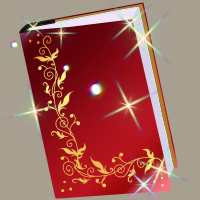Jan 30, 2025
Whilst I was complimentary with my last 'serious' comment, I'll have to dial up the criticism a little bit. We are around the midpoint now and, frankly, I struggle to see a serious bit of conflict here. There is a bit of uncertainty about Petra's inner world, an uncertainty that despite its exploration in every chapter, feels like it doesn't ever progress. She's worrying about things in a very summary, almost superficial way, to a point where I have to wonder: what is her flaw? What development are we following? What is the goal here? What are we trying to say?
Don't get me wrong, the story is still entertaining even without a 'big' answer to these questions. But as of right now, my interest is starting to wane because I can't really conceptualise any answer. It feels like Petra's flaws – her anxiety, her wishfulness, her dubious desire to extricate herself from her 'adoptive-naturalborn' culture, and her staunch lack of identity – are all muted and blurred. None take centre stage and when they do, they don't seem to animate anything more than just a bit of temporary angst that we forget.
And again, this is at the midpoint. I feel like there should've been more meat on the plot's bones, is what I'm getting at.
![]()










![]()









